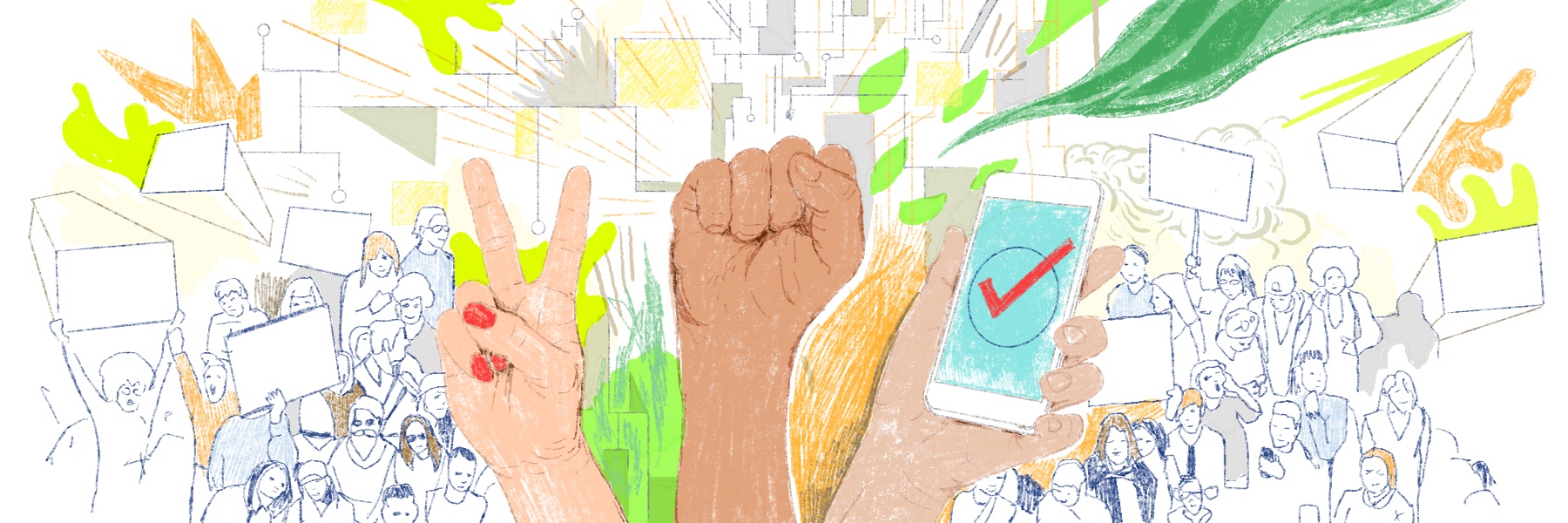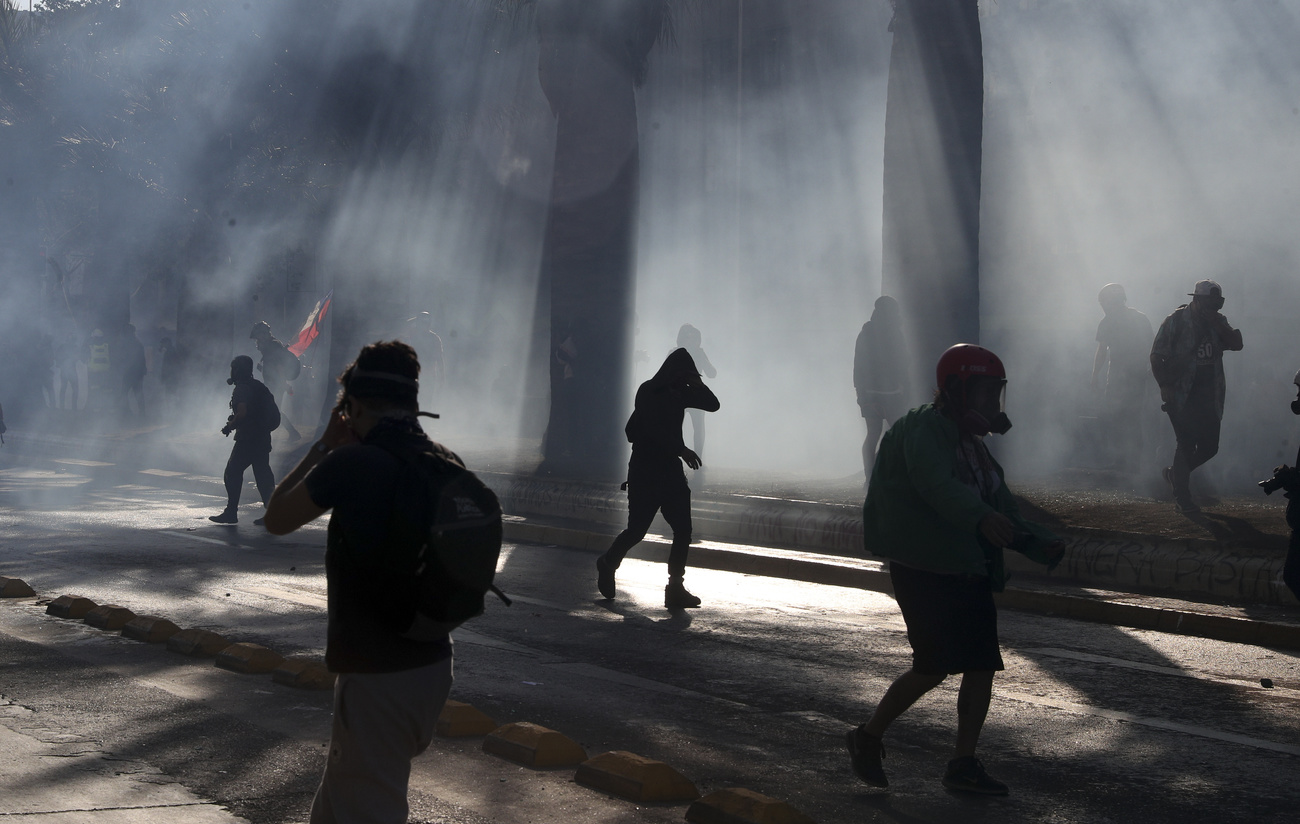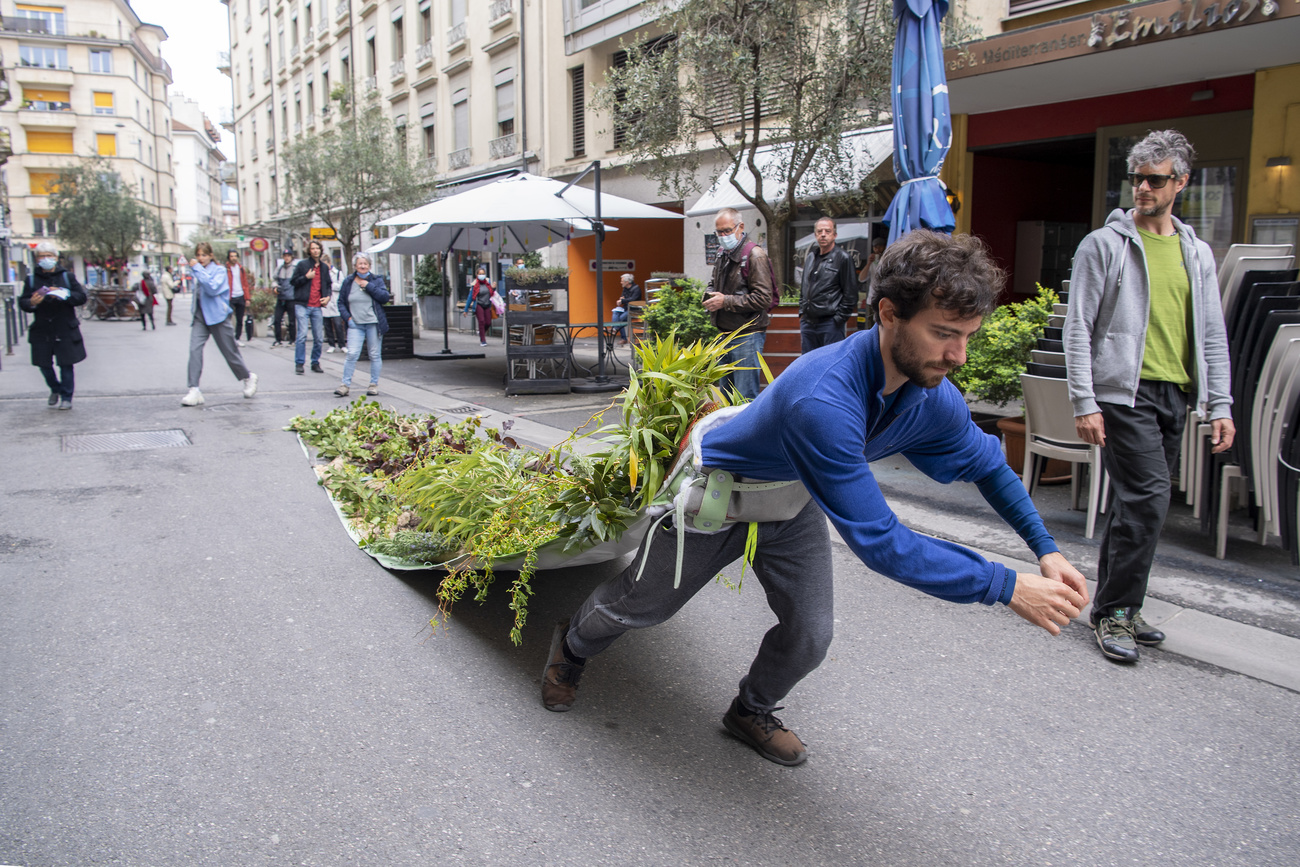Mexico’s first referendum: for democracy or for populism?

President Andrés Manuel López Obrador has launched the first nationwide referendum aimed at cracking down on political corruption. However, the question submitted to voters is vague and wouldn’t result in a clear mandate. Popular votes might boost citizens power, but they also risk creating social divisions. Which way is Mexico going?
On August 1, some 93 million Mexicans are called to the ballot boxes – for the second time in just two months. On June 6 voters elected representatives to local, regional and federal offices.
Now they have to answer a question whose complexity becomes evident at first glance. A shortened version of the text reads as follows: “Do you agree or disagree that the pertinent actions be carried out […] to undertake a process of clarification of the political decisions made in the past years by political actors, aimed at guaranteeing justice and the rights of the probable victims?”
There is no doubt that this first-ever nationwide popular vote addresses a crucial issue, but nobody can truly disagree. Thus, what is the decision about?

More
Fourth of July and the reinvention of modern democracy
If it is a matter of investigating the commission of crimes, the popular vote is unnecessary, because this is already possible under current law. And if this wasn’t the case, the government should have proposed its amendment without asking for a verdict by the people.
The ambiguous wording of the question – what, how and how much time to investigate? – makes it difficult to establish a clear mandate in case the referendum wins approval and at least 40% of the electorate take part. Mexico, unlike Switzerland but similar to Italy, has a turnout quorum for a vote to be valid.
It adds to the confusion that President López Obrador launched the referendum but he repeatedly said he will vote against it in order “to avoid revenge”.
Why making all these efforts if the main promoter of the ballot has openly come out against it and corruption can already be prosecuted under existing law? It shows how referendums can be used to mobilise citizens and/or to maintain popular support for the leader.

More
A global stress test for freedom of expression
Which kind of democracy?
Dissatisfaction with existing democracies is growing around the world. According to new data from the Pew Research CenterExternal link, Mexico was top of the list in 2018, with 85% of respondents expressing dissatisfaction with the functioning of democracy in their country.
Mexico also comes top in a ranking of corruption indicators. At the opposite end of the list is Switzerland, where corruption levels are low in absolute and comparative terms, although it is falling behind in Transparency International’s latest Corruption Perceptions Index. A group of NGOs has criticised the policy paper recently approved by the government in Bern claiming that Switzerland still has work to do, notably when it comes to political lobbying and money laundering. Scandals involving Swiss banks and business deals in Taiwan, Guinea and Ecuador underpin the allegations.
In Switzerland, modern forms of direct democracy like the initiative and referendum process are a constitutive part of the political decision-making system. Mandatory referendums give citizens a say on constitutional reforms, as well as on key international agreements. Optional popular votes guarantee the right to veto legislation passed by parliament. Initiatives and referendums in Switzerland are in fact acting as counterbalance and relief valves to canalise citizen demands.

More
Chile’s constitutional vote offers window to democratic future
However, popular votes about substantive issues are also an instrument strongly advocated by populist and autocratic leaders. In a sense, Switzerland is one of the most populist countries in Europe: the right-wing Swiss People’s Party is the leading political group with a strong anti-elitist and nationalist bias. At the same time, popular anger is often channelled through direct democratic tools of decision making, and this helps to make Switzerland one of the most stable, participatory and prosperous democracies in the world.
How can Mexico follow this path?
Empowering the powerless
Mexico is the last country in Latin America to formally regulate mechanisms of direct democracy at a national level. But rules have been in place in all the 32 Mexican states.
The “Navigator to Direct Democracy” lists no less than 261 different tools of direct democracyExternal link at all political levels. However, none of them have been applied at the national level, apart from some top-down consultations involving limited parts of the electorate. The best known example was the “consultation” on suspending the construction of the new airport. No surprise therefore that critics say the rules on democracy exists only on paper.
Moreover, most Latin American systems are defined as presidentialist. Direct democracy mechanisms in the hands of strong executives may increase their power against opponents, creating divisions between supporters and opponents of the government instead of discussing issues under discussion in a consultation.

More
Newsletters
In Switzerland as seen in the June 13 vote and so many previous ballots, the government (which cannot initiate a vote) usually plays a more reactive role. While most citizen initiatives and referendums are defeated at the ballot box (by 2018 the rate of success was 10.5%), they have a strong indirect impact as they put issues on the public agenda and promote compromise solutions through dialogue and negotiation.
It is wrong to maintain that votes are primarily a tool used by the disempowered. It takes powerful groups with the necessary financial and organisational resources to bring an issue successfully to a public vote. But it is true that these instruments of direct democracy offer possibilities for groups and political players that don’t have formal mechanisms to influence policy-making in many other countries.
There is still a way to go
Mexico clearly doesn’t yet meet the required criteria to empower its citizens. To date, no signature collection proposal has been successful as none was considered in line with the country’s constitution. In the latest case the Supreme Court of Justice of the Nation decided to adapt the original question submitted by the president. This original question listed the names of the last presidents of the country, something clearly unconstitutional. In a controversial act, the Court rephrased the question modifying the proposal.
López Obrador hoped to use the direct democratic tool to mobilise the electorate for the June 6 elections. But it didn’t quite work out. Now the national elections commission claims that it lacks the necessary funds to organise and carry out the August 1 referendum in Mexico. This doesn’t bode well, unfortunately. It appears there is still a long way to go for the country on its way to establish and put into practice a modern and robust initiative and referendum process at a federal level.

In compliance with the JTI standards
More: SWI swissinfo.ch certified by the Journalism Trust Initiative











You can find an overview of ongoing debates with our journalists here . Please join us!
If you want to start a conversation about a topic raised in this article or want to report factual errors, email us at english@swissinfo.ch.